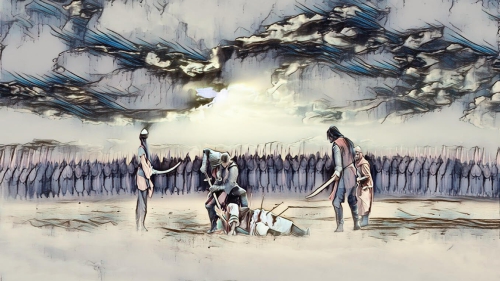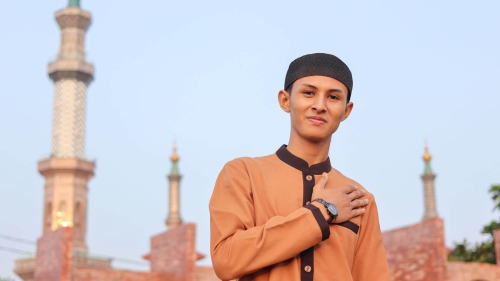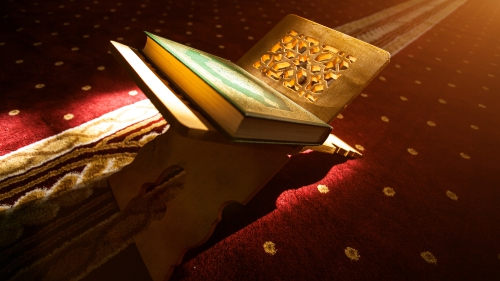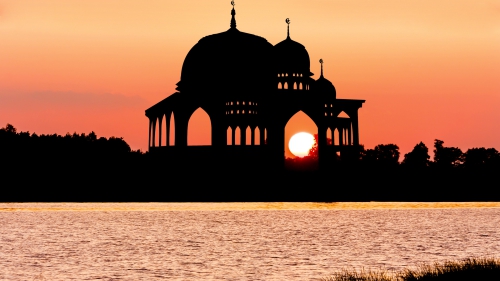Truth

The Earth is not flat. Religion is not the problem. Not practicing one’s religion properly is the problem. Furthermore, truth is not meant to be practiced “once a week.” Everything else in life is scrutinized, but what is most important which is the purpose of life itself in the form of universal truths is not a frequent part of an intelligent conversation, let alone entertained. In school, we are instructed in stories of betrayal and murder among leaders and young love behind parents’ backs ending in tragedy. However, even a simple session in learning about the basic tenets of the religion of students sitting beside me never won a place in the curriculum. And I wish it did because when I grew up, I wasn’t just sitting beside those students, but I was living among them. And if it had, I guarantee that those parents would have curbed its flow demanding why their children are being indoctrinated with alien and heathen principles. And, unfortunately, we grow to inherit principles just as we inherit the combination of genes, good and bad. It is astonishing that as we grow older, we as a vast majority blindly swallow what our parents have blindly swallowed from their parents and so on and so forth, but we become fighters for free will against our parents when it comes to areas we are sincere and passionate about such as our choice of career or significant other. Has man or woman ever in history made a mistake? If so, I think all of us would rather not inherit it.
And nothing misses our attention in the quest for career and love, but the search for universal truths pales in comparison. And as I grew older and started medical school, the world I lived in became even more clouded. Can you imagine even for a second without losing your breath out of shear fear if physicians held different perceptions regarding the physiology of the heart? It’s a truth and if different perceptions existed then we would be drowning in pathology. Is it no surprise that we are largely failing at understanding and living among each other, let alone living with ourselves and our families visible in the myriad of social problems plaguing our societies?
We have enough problems with the multitude of perceptions. Unfortunately, as if all of this wasn’t enough, arrogance and ignorance further exacerbate the existing problems and likely contributed to the problems in the first place. If one researches the schisms within and between religions and even schisms in general, one will find political and ultimately selfish interests at the core. Is it reasonable to blindly or knowingly follow and adhere to principles that were established on the foundation of human beings’ self-serving goals? We would just be perpetuating errors that are not our own. Should we not care more about our future generations enough to alter this unfounded course?
I remember in the midst of my own research, one of my best high school science teachers clearly and confidently stated to me that she believes all different religions are different paths to God. I found her to be in clear error because she completely failed to mention the most important point that the definition of God differed among the different religions. At that point, I came to the realization that though she was held in high regard in her field, that achievement did not qualify her in any way for a discussion on the principles of religions. She taught one standardized set of scientific principles that is also taught all over the world. Why should it be any different regarding an area most important, the purpose of life itself? And, unfortunately, the more one knows in a completely different field, the more he or she feels qualified to offer unfounded comments on everything else. One of the most knowledgeable physicians once told me that he doesn’t believe that a group of people could have what he described as “inside information.” His statement was in error because information is not owned by anyone and if one does not seek out and research on his or her own, then how else can one obtain accurate information? His statement contradicted every principle that he learned and practiced as a physician. Is continuity of rational thought isolated only within a field of specific knowledge?
Furthermore, does not the quest for justice that we advocate for in every aspect of our life apply to the concept of universal justice? We have police forces and courts to maintain law and order. Rules and standards permeate every aspect of life. If one is shirking his responsibility at work, his fellow colleagues spiral into anger over the injustice of the situation and find ways to rectify it. So then, how can any crime, let alone crimes against humanity escape ultimate justice?
And ultimately, why do we not share a universal purpose? One colleague stated to me that his purpose in life is to obtain a good career. I asked him why does he want a good career. Of course, to earn more money. That may be his purpose, but that is not congruent with a universal purpose because he’s only benefiting himself. Every action we do from the most menial to the most significant is attached to a preceding purpose. Does it not follow that a purpose exists for something most important, for life itself?
One of the most important comments about thinking came from my high school math teacher. The class found calculus challenging and we would often hesitate in our thinking and ability to solve increasingly complex problems. So, one day, he commented to all of us, “Why are you afraid to think? Do you think your mind is going to explode?” I never forgot that comment and often remember it in order to always maintain an open, rational mind. I am human too, so I hope with the utmost sincerity that if my thinking and actions are wrong, someone more informed will correct me albeit in an appropriate manner. The human being has been given one of the greatest gifts, the brain and ability to reason and think. At the end of the day, it’s your right, your choice, and your life to think and do as you please. But, don’t just be sure, be very, very sure because the human being is fallible. Why else do we amend things? And you wouldn’t want to degenerate into the plotlines that we grew up reading, embroiled within leaders’ insatiable quest for power or within illicit affairs. Oops, too late. Let’s just not drown too.
Dr. Sarah Syed, MD is a graduate of the University of Miami Miller School of Medicine Class of 2015 and is doing her residency in West Palm Beach.

















